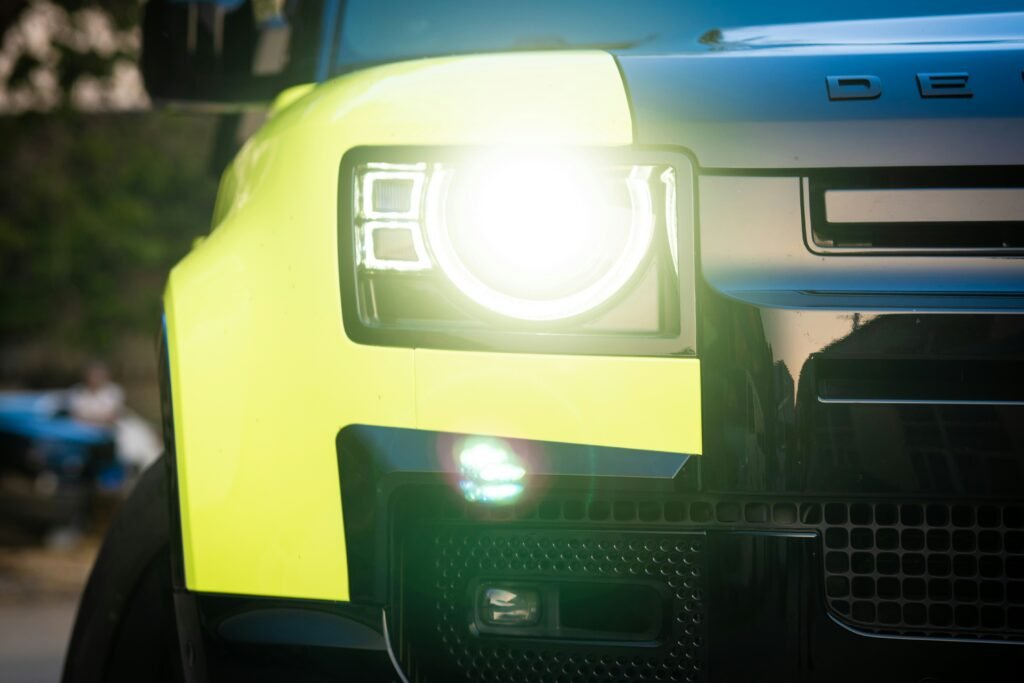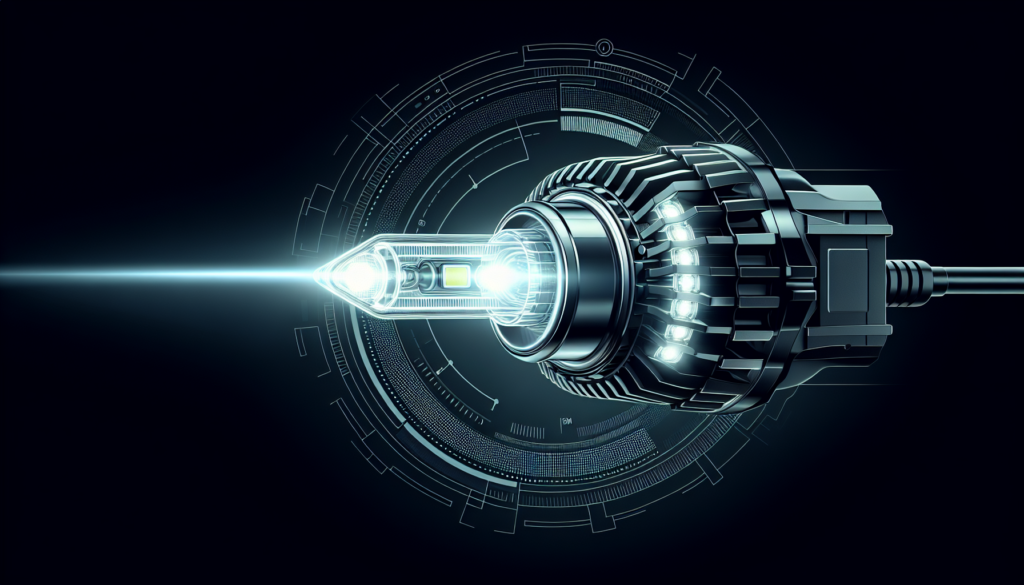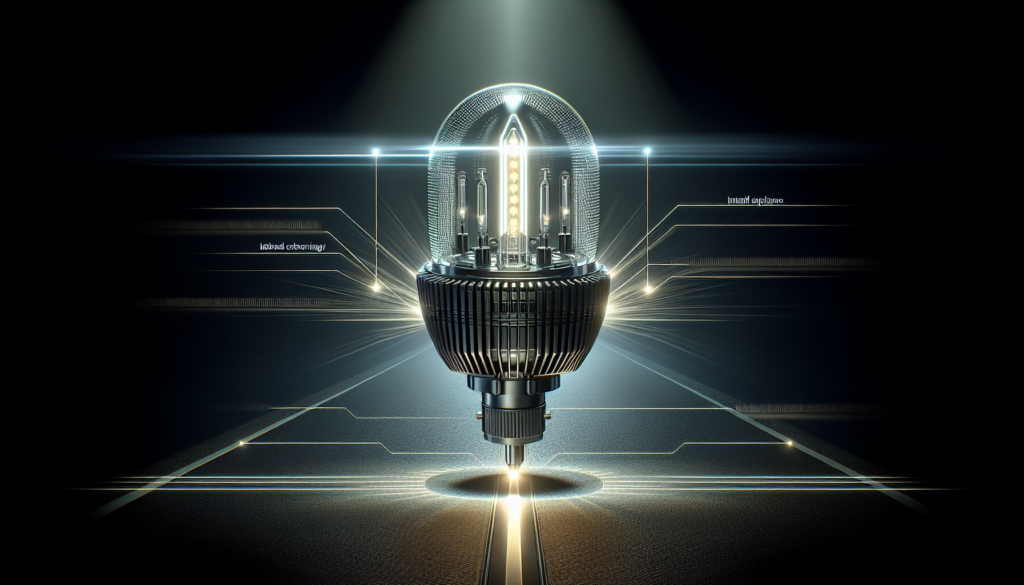
Imagine cruising down the highway at night, the path ahead illuminated with crystal-clear brilliance, thanks to the latest in automotive lighting technology. Your article, “Shedding Light on the Road: LED headlight conversion for Enhanced Visibility,” explores the transformative impact of upgrading to LED headlights. By opting for LEDs, you not only enhance your nighttime driving experience but also significantly improve your vehicle’s visibility to others on the road. This engaging read will guide you through the benefits and the straightforward process of making the switch, ensuring your journey through the dark is both safe and enjoyable.

This image is property of images.unsplash.com.
Understanding Headlight Technology
The evolution of headlight technology
From the early days of oil lamps to the modern marvels that light up the road ahead, headlight technology has been constantly evolving. You may not realize it, but there was a time when driving at night was a perilous task. Over the years, headlights have transitioned through various phases: starting from acetylene flames, moving through electric lamps, then halogen bulbs, and now arriving at High-Intensity Discharge (HID) and Light-Emitting Diode (LED) systems. Each advancement brought brighter and more reliable lighting, making night driving safer and more accessible for you.
Comparison of halogen, HID, and LED headlights
Halogen headlights have been the go-to for many years, and you can easily recognize them by their warm yellowish glow. They are affordable and rather straightforward to replace. HID lights or ‘Xenon headlights’ provide a crisp, white light and have a longer lifespan than halogen bulbs. However, they can be expensive and take a few seconds to reach full brightness. LEDs take the lead in efficiency; these marvels use a fraction of the power while emitting a bright, white light instantly. Their small size also gives you more creative headlight designs in modern vehicles.
Advantages of LED technology in automotive lighting
LED technology has revolutionized how you see and are seen on the road. Their incredible energy efficiency, longevity, and improved visibility are game-changers in the automotive world. With LED headlights illuminating the road ahead, you are equipped with a brighter and more focused beam of light, ensuring greater safety. Their durability also means you’re less likely to find yourself needing to replace them on the side of the road late at night.
The Basics of LED Headlights
What are LED headlights and how do they work?
LED stands for Light-Emitting Diode, which is a type of semiconductor that emits light when an electric current passes through it. Unlike halogens, they don’t rely on a filament or gas discharge to produce light. Instead, LEDs create light through the movement of electrons within the semiconductor material, resulting in less wasted heat and more light output. LED headlights are not only brighter than traditional headlights, but they also light up faster and have a color that closely resembles natural daylight.
Key characteristics of LED lighting
Some key characteristics of LED lighting that you’ll find beneficial are their long life expectancy, their resistance to shock and vibration, and their ability to reach full brightness instantaneously. Furthermore, LEDs can be small and are flexible for different shapes and designs, giving your vehicle a sleek, modern look.
The impact of LED headlights on visibility
For you, the driver, the impact of LED headlights on visibility is tremendous. The daylight-like quality of LED light improves contrast and allows you to see clearer and further ahead. This means you can react more quickly to obstacles in the road, pedestrians, and sudden changes in the driving environment, especially in adverse weather conditions or the darkness of night.

This image is property of images.unsplash.com.
Benefits of LED Headlight Conversion
Improved visibility and reaction times
By converting your vehicle’s headlights to LEDs, you’re setting yourself up for improved visibility on the road. This results not only in more distance illuminated but also in faster response times to what’s happening ahead. With improved clarity, your eyes will strain less during long night drives, keeping you more alert and reducing the likelihood of accidents.
Enhanced road safety
Safety is paramount, and with LED headlights, you’re better equipped to avoid potential hazards. The broader and more accurate beam pattern significantly reduces blind spots and casts light more uniformly, so you can navigate roads with confidence at night. This is especially helpful in preventing collisions with wildlife or other unexpected obstacles.
Longevity and durability of LED lights
Say goodbye to frequent bulb changes. LED headlights boast a remarkably long service life, often outlasting the vehicle they’re installed in. They’re built to endure rough conditions, which means they’re less likely to fail when you need them most. You can rely on their consistent performance for tens of thousands of hours.
Energy efficiency and reduced power consumption
LEDs shine bright in the department of energy efficiency. They consume significantly less power – which in turn relieves some of the burden on your car’s alternator and battery. This increased efficiency doesn’t just help with power; it contributes to fuel economy as well, saving you money in the long run.
Selecting the Right LED Conversion Kit
Factors to consider when choosing an LED kit
When you decide to upgrade to LED headlights, there are several factors to keep in mind. You’ll want to ensure the kit you choose is compatible with your vehicle’s make and model, that it offers adequate lumens for the brightness you need, and that the bulbs fit properly into your headlight housing without modification.
Understanding lumens and color temperature
Lumens are a measure of the total amount of visible light from a source, and color temperature refers to the color appearance of the light. You’ll want a lumen count that provides ample brightness without causing glare to other road users, and a color temperature that offers clear visibility. Many LED headlights are in the 6,000K range, which is a cool white color, providing excellent visibility and contrast.
Compatibility with existing headlight housing
Before taking the plunge, make sure that the LED conversion kit is fully compatible with your headlight housing. LED bulbs are generally designed to fit into the same space as halogen bulbs, but issues can arise with reflector style housings. It’s important to check that the LED bulbs you select are suited to these housings, to prevent incorrect beam patterns and glare.

This image is property of images.unsplash.com.
DIY Installation vs. Professional Install
Assessing the complexity of installation
You might be considering installing the LED conversion kit yourself. Evaluating the complexity of installation is essential. Some vehicles make it a simple, straightforward process, while others might require more extensive disassembly or special tools. Always review the steps and judge your comfort level with the installation process before beginning.
Tools and steps for DIY replacement
If you decide to install the headlights on your own, you’ll need a few common tools like screwdrivers, pliers, and perhaps a socket set. The steps generally involve removing the old headlights, installing the LED bulbs and drivers, and then properly aligning the headlights. It’s a rewarding project, but accuracy is key to ensure safe and effective illumination.
When to seek professional installation services
If you find yourself unsure about the installation process, or if it requires more complex vehicle modifications, it might be best to seek professional help. A skilled technician can ensure that your LED headlights are installed correctly and safely, saving you time and hassle.
Legal and Compliance Considerations
Regulations on headlight conversions
Automotive lighting is subject to strict regulations for safety reasons. It is important to be aware of the legalities surrounding headlight conversions in your area. LED upgrade kits must typically adhere to the same standards as factory-installed headlights, and some jurisdictions may have specific rules regarding brightness, color, or beam pattern.
Ensuring your LED headlights meet local laws
To avoid fines or penalties, check that the LED conversion kit you plan to install meets or exceeds local vehicle lighting regulations. Proper certification and labeling on the packaging are good indicators of compliance. Remember, legal compliance isn’t just a formality; it ensures that your headlights are safe for you and other road users.
Avoiding potential fines and penalties
Non-compliance with vehicle lighting laws can result in fines or even having your car fail its vehicle inspection. When upgrading to LED headlights, ensure your new lights are not only legal but correctly installed and aligned, to prevent blinding other drivers, which could also lead to penalties.

Challenges and Solutions in LED Conversion
Managing heat dissipation issues
While LED headlights are more efficient, they still produce heat that must be managed. Quality conversion kits include heat sinks and fans to dissipate heat away from the LEDs, maintaining performance and longevity. Ensure any kit you purchase has an effective heat management system.
Addressing potential flickering problems
Sometimes, LED conversion kits can cause flickering due to incompatibility with the vehicle’s electrical system. This is often resolved with the addition of an anti-flicker harness or load resistors that stabilize the current flowing to the LEDs. Solutions are readily available, but it’s worth noting if you’re planning a DIY installation.
Dealing with error codes and dashboard warnings
Your vehicle’s computer might not recognize the LED headlights and could display error messages or warnings. Canbus-compatible LED kits are designed to communicate properly with the vehicle’s onboard computer, avoiding these issues. If you do encounter errors, a Canbus adapter might be needed.
Maintenance and Care for LED Headlights
Cleaning and upkeep for optimal performance
To get the most out of your LED headlights, regular cleaning and maintenance are a must. Keep the lenses clear of dirt and debris to prevent light output reduction. Inspecting the heat sinks and fans for dust build-up ensures effective heat dissipation and continued high performance.
Troubleshooting common LED headlight issues
If issues arise, troubleshoot by checking the connections and ensuring the LED bulbs are seated properly. If flickering occurs, it may be necessary to install anti-flicker adapters or check the power supply for consistency.
When to replace LED bulbs
Despite their longevity, LED bulbs won’t last forever. When they begin to dim or fail, it’s time for a replacement. Thankfully, this is a rare occurrence, and with LED technology continuously improving, your next set of LEDs might be even more efficient and brighter.

Cost Analysis of LED Headlight Conversion
Initial investment vs. long-term savings
While the upfront cost of LED headlights is higher than traditional bulbs, they often pay for themselves over time. The longevity of LEDs means fewer replacements, and their energy efficiency can contribute to fuel savings. When analyzing the costs, consider these long-term savings as a key benefit.
Comparing LED headlight costs with other types
When comparing the costs of LED headlights to halogen or HID bulbs, remember to factor in lifespan and energy consumption. LEDs might be more expensive initially, but they often require less maintenance and use less power, meaning you’ll save money in the long run.
Return on investment calculations
To determine the return on investment, calculate the cost of the LED kit and installation, if applicable, against the money saved from reduced energy consumption and the longer lifespan of the bulbs. You’ll typically find that LEDs are a smart investment for both your wallet and your driving experience.
Addressing Environmental Concerns
The eco-friendly aspect of LED lights
One of the most appealing aspects of LED headlights, from an environmental standpoint, is their energy efficiency. Using less power not only reduces strain on your vehicle’s electrical system but also lessens your environmental impact by cutting down on fuel consumption and CO2 emissions.
Reduction of carbon footprint with LEDs
Upgrading to LED headlights contributes to a lower carbon footprint. With decreased power requirements, your vehicle can perform more efficiently, emitting fewer pollutants into the atmosphere. It’s a small change you can make that has a positive effect on the environment.
Recycling and proper disposal of old headlights
When you switch to LED headlights, be mindful of how you dispose of your old halogen or HID bulbs. These contain materials that shouldn’t end up in landfills. Check for recycling programs in your area or inquire with automotive shops for proper disposal methods, to ensure you’re not harming the environment during your upgrade.
In conclusion, converting to LED headlights offers a myriad of benefits, from improved visibility and safety to econ-efficiency and environmental friendliness. With the right knowledge and consideration, you can make an informed and compliant choice that enhances your driving experience while also being a steward of the earth.

